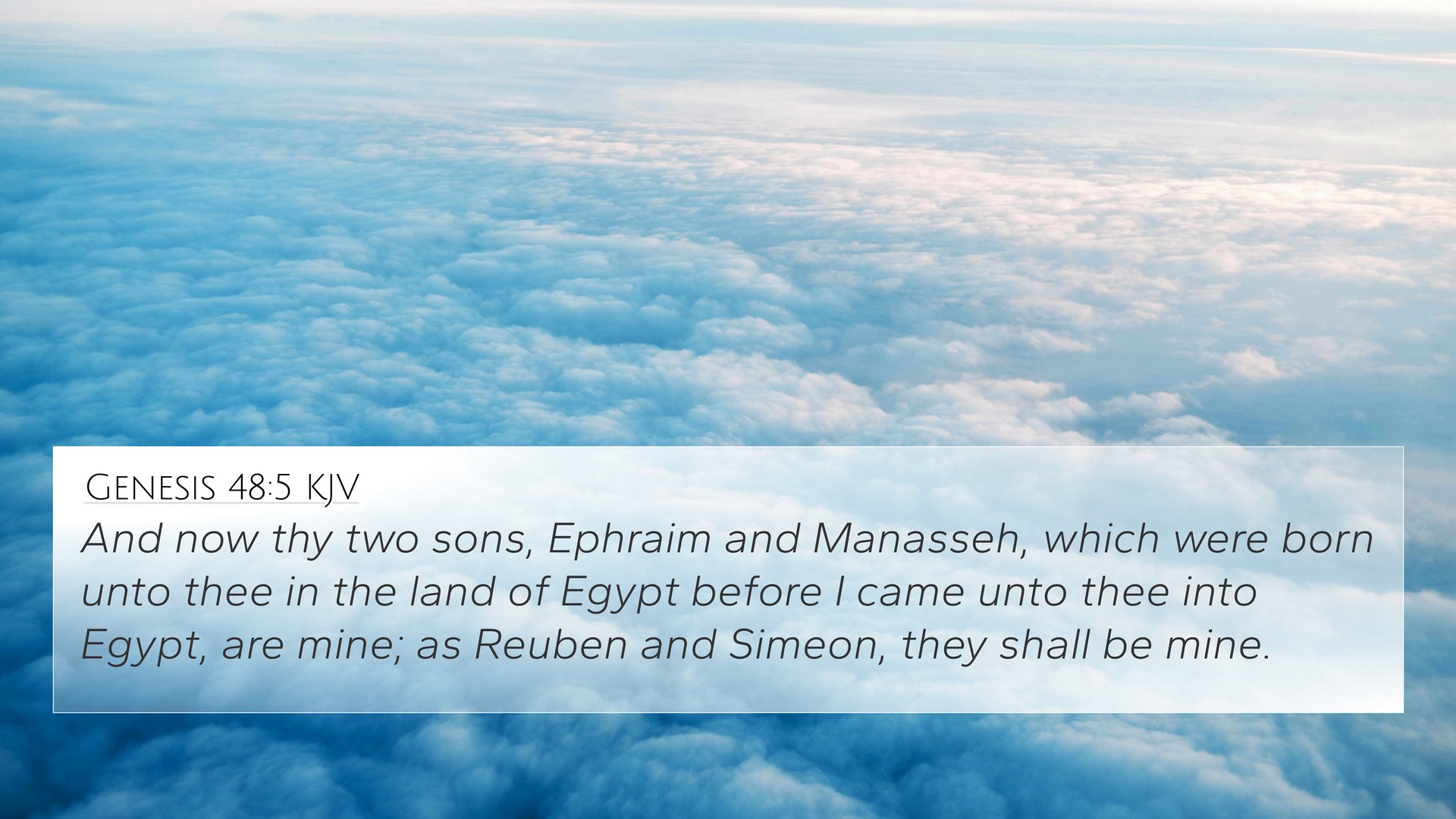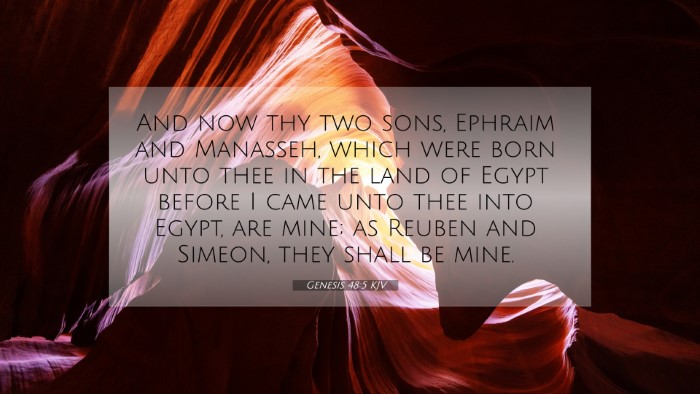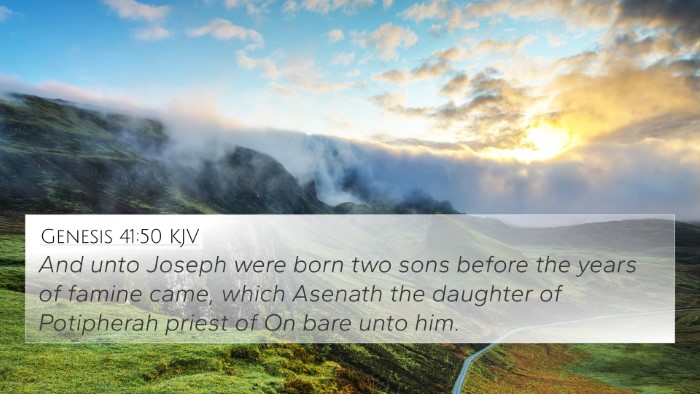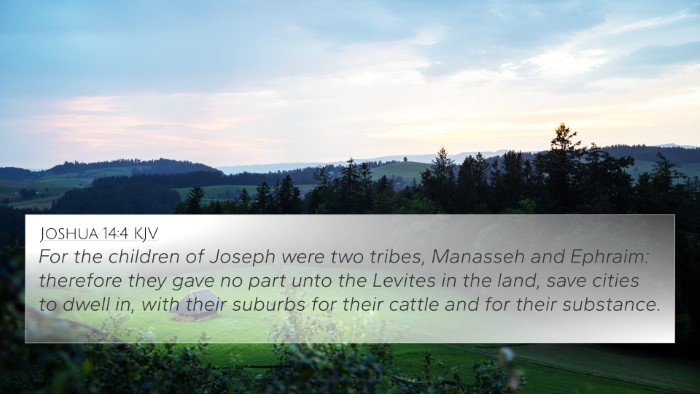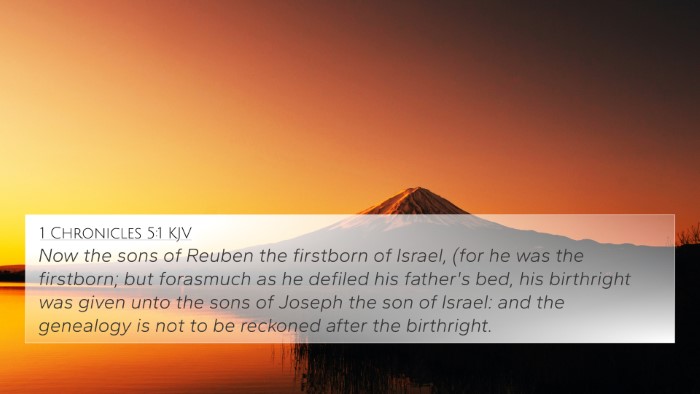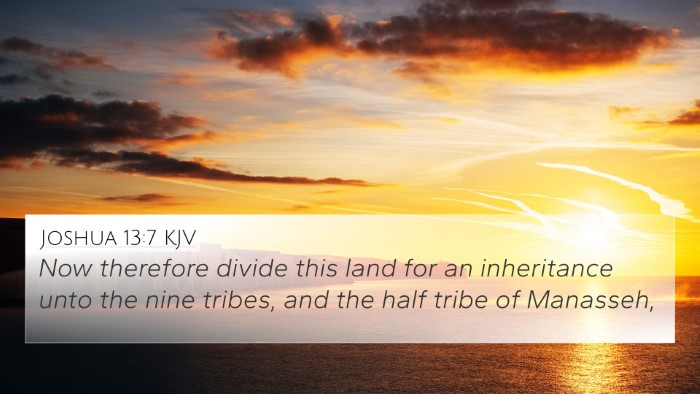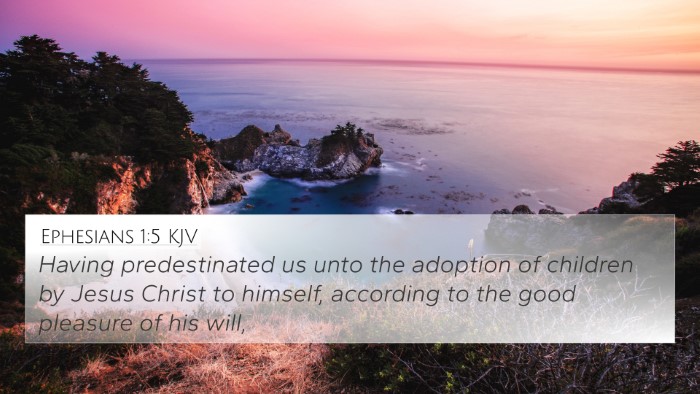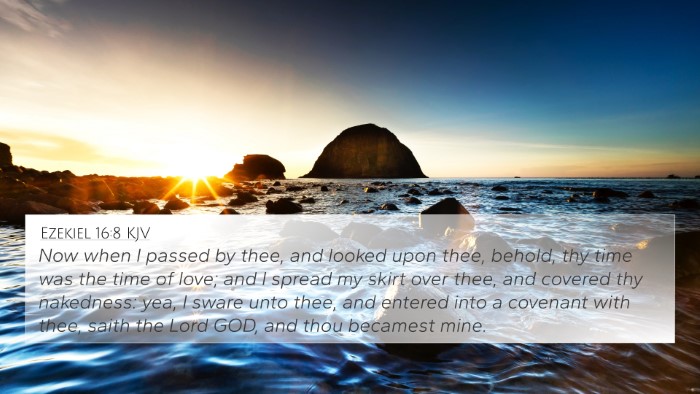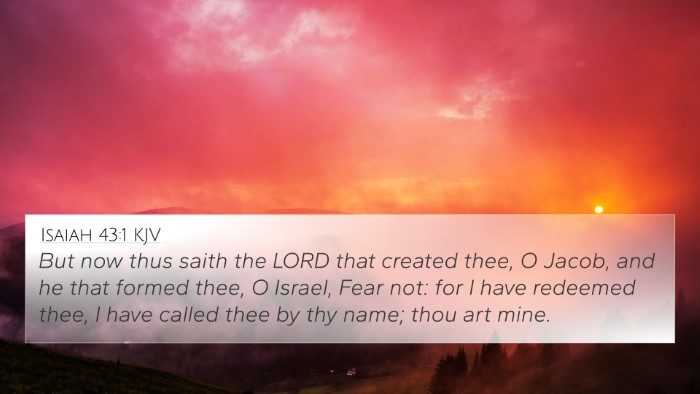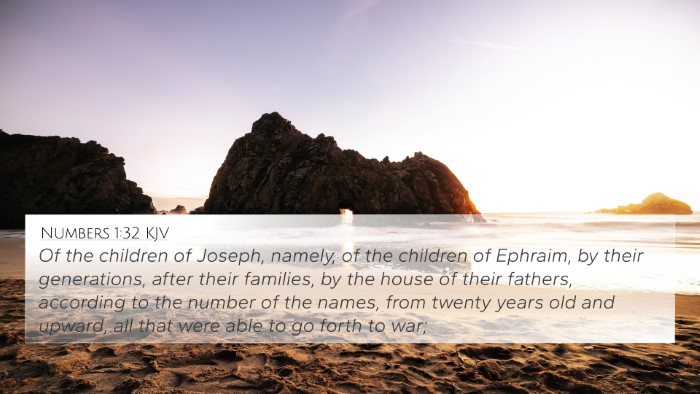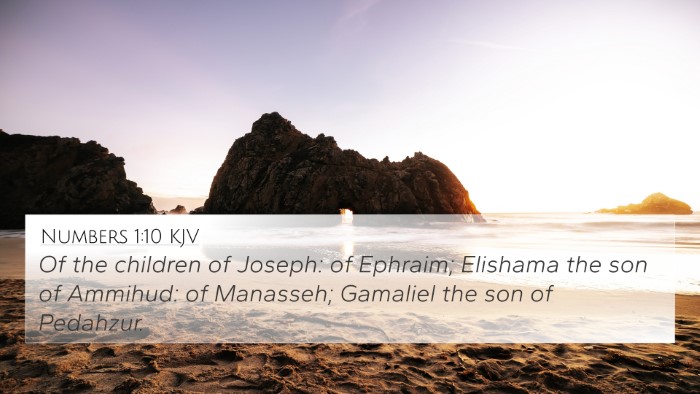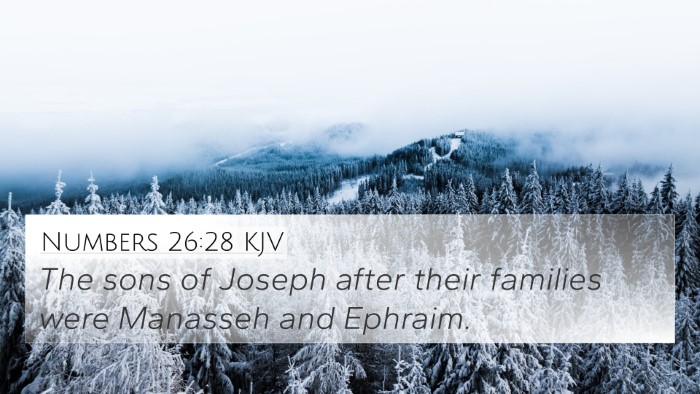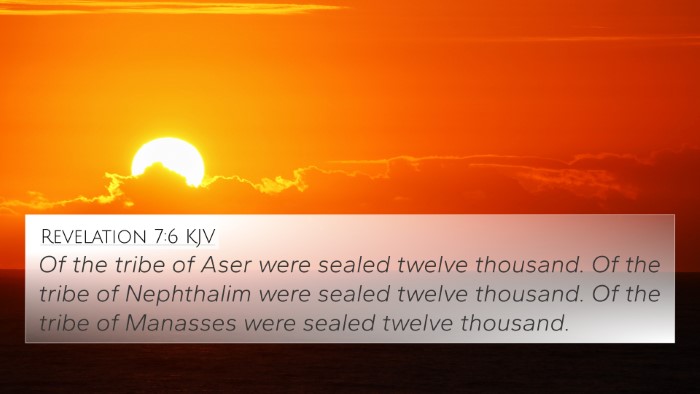Understanding Genesis 48:5
Genesis 48:5 states: "And now thy two sons, Ephraim and Manasseh, which were born unto thee in the land of Egypt before I came unto thee into Egypt, are mine; as Reuben and Simeon, they shall be mine." This verse is significant in the context of Jacob's blessings to his grandsons, Ephraim and Manasseh, and reflects the theological and genealogical implications in Israel's history.
Contextual Significance
Jacob, nearing the end of his life, adopts the sons of Joseph. According to Matthew Henry, this act indicates a transfer of privilege and status from Joseph to his sons, ensuring they share equally in Jacob's inheritance. Albert Barnes emphasizes that this adoption marks them as equal heirs with Jacob's own sons, Reuben and Simeon, thus creating significant inter-family dynamics in the tribes of Israel.
Theological Implications
Adam Clarke elaborates on the spiritual significance, noting that this act symbolizes the fullness of God's plan for the Israelite nation. By adopting Ephraim and Manasseh, Jacob introduces a duality in leadership as both sons will play prominent roles in the formation of the nation of Israel. Their inclusion denotes the expansion of God's covenant beyond the immediate family, signaling inclusiveness in divine favor.
Genealogical Context
This verse serves a critical genealogical function. Jacob's acknowledgment of Ephraim and Manasseh as his own sons integrates them into the lineage of Israel, as highlighted by Matthew Henry: "The younger shall be greater than the elder," hinting at the preeminence of Ephraim in the blessings.
Cross-References
Genesis 48:5 connects with several other passages, enriching our understanding through Bible verse cross-references:
- Genesis 12:2-3 - The promise to Abraham, which encompasses future nations coming from his lineage.
- Genesis 41:50-52 - Joseph names his sons, indicating an Egyptian upbringing before returning to his family.
- Exodus 1:5 - Lists the sons of Jacob who came into Egypt, which highlights the expansion of the family.
- Deuteronomy 33:13-17 - Moses' blessings that affirm the importance of Ephraim and Manasseh in Israel's history.
- Joshua 14:4 - The tribes of Joseph inherit the promise, establishing continuity from Jacob's actions.
- 1 Chronicles 5:1-2 - Details the lineage of Jacob's sons and gives context to the tribes' characteristics.
- Isaiah 11:13 - Prophesies about the restoration of the tribes, showing the lasting significance of Ephraim.
- Hebrews 11:21 - The faith of Jacob is highlighted, illustrating his prophetic act when blessing the sons of Joseph.
- Revelation 7:6 - Ephraim's significance is reiterated while discussing God’s people in the end times.
- Matthew 1:2-16 - The genealogy of Jesus, which ultimately traces back to the twelve tribes, including Ephraim and Manasseh.
Conclusion
In summary, Genesis 48:5 acts as a fulcrum linking various themes in the Bible, from adoption and inheritance to the roles of Ephraim and Manasseh in the covenant community. It provides grounding in understanding God's ongoing narrative through His people.
Through this verse and its cross-references, we gain insights into how the dynamics of family and divine choice shape the history of God's people, culminating in the ultimate fulfillment in Christ.
Tools for Further Study
- Utilize a Bible concordance for easy access to related verses.
- Employ a Bible cross-reference guide to deepen your understanding of inter-Biblical dialogue.
- Engage in cross-reference Bible study methods to examine thematic connections across the Scriptures.
